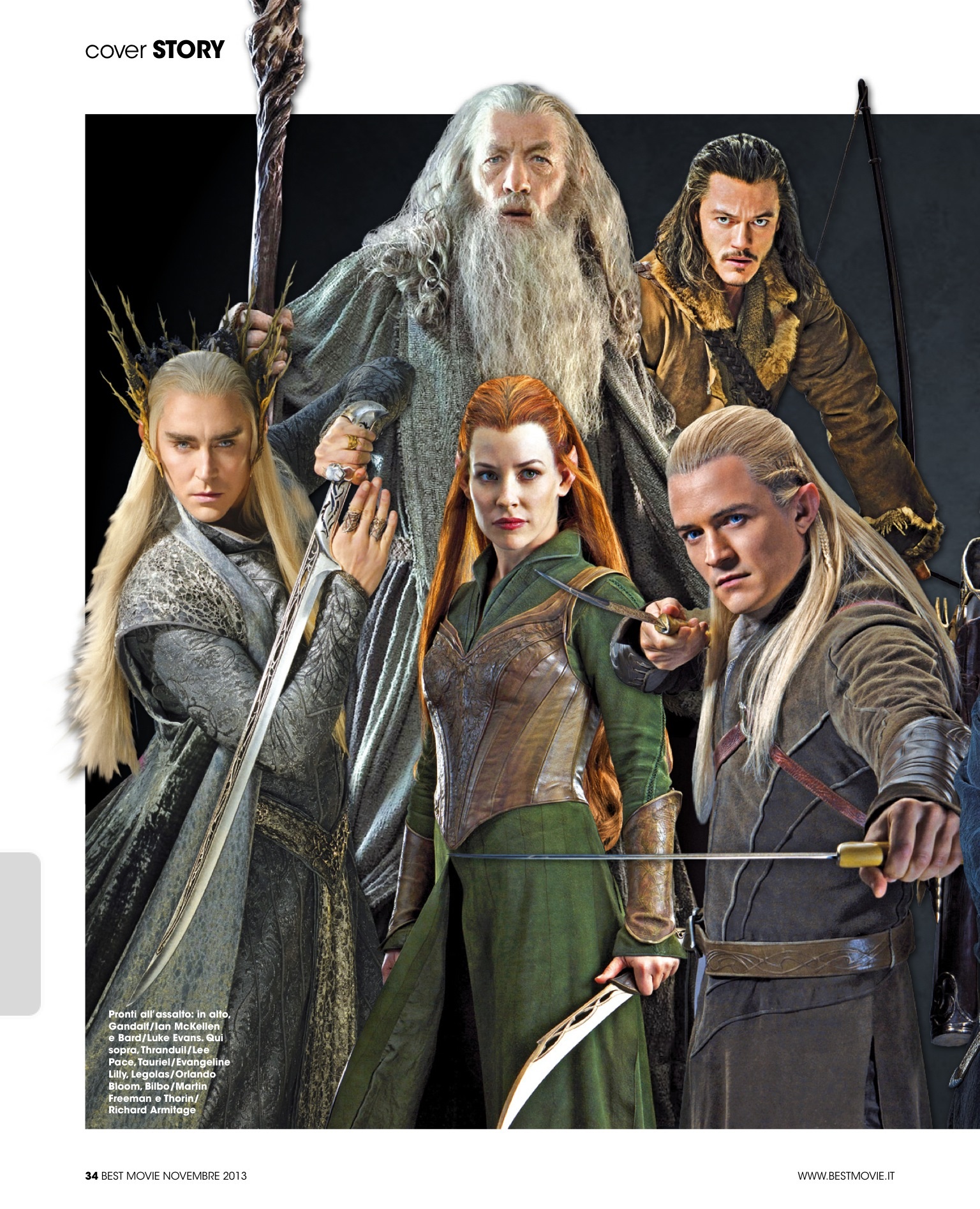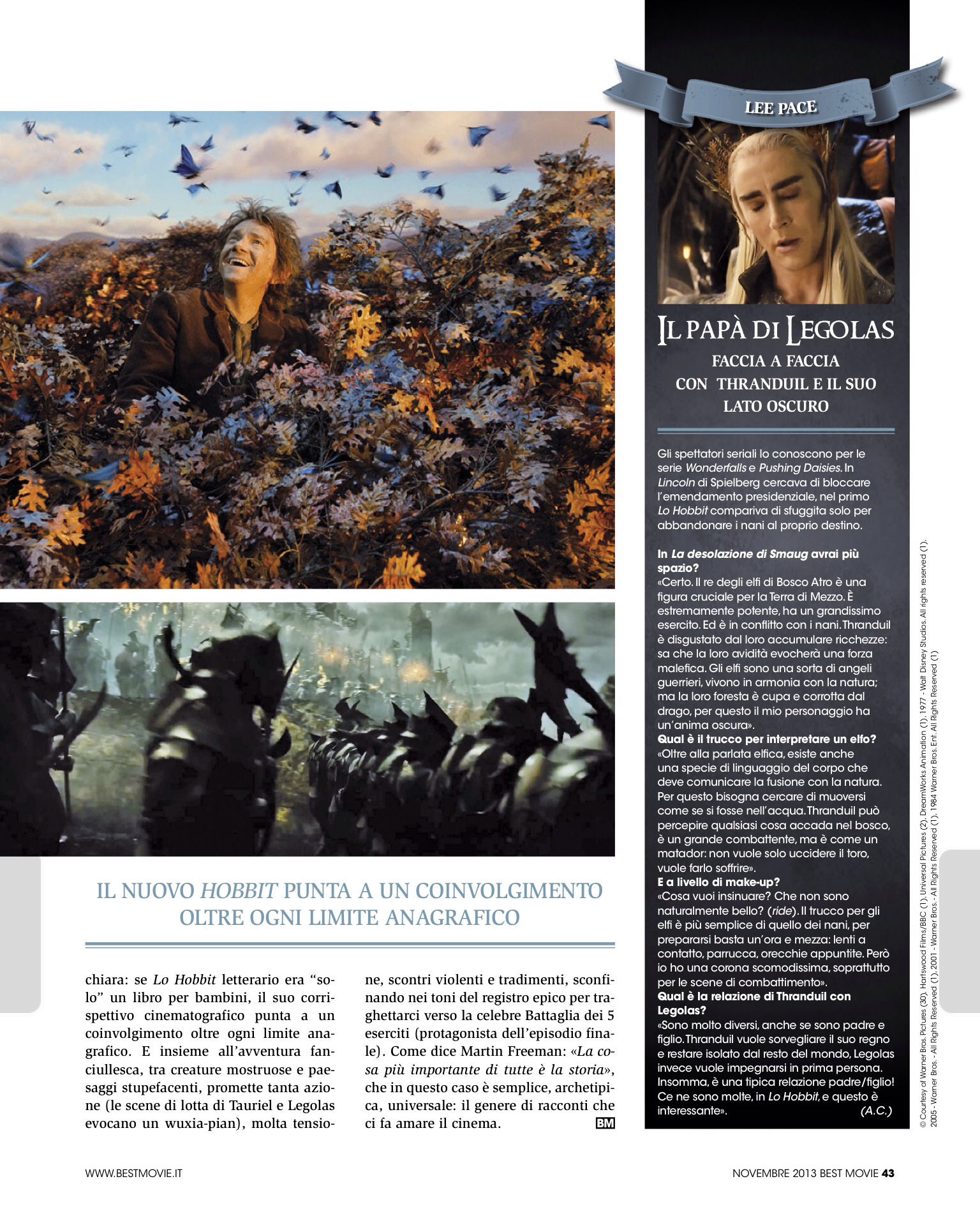Lee Pace on sword fighting, Tolkien and more
The Sag Harbor Express has a new interview with Lee Pace, where he mainly discusses The Hobbit trilogy films.
Q: Here you are again playing Thranduil. Is there a process involved in playing a character over so many years?
Lee Pace: It’s been a totally artistic experience, and I’ve had a lot of fun. I’ve been working on this movie for about three years now, so the “process” means a lot of different things. There’s the incredible source material that I haven’t been able to stop thinking about, about what Tolkien thought about the elves, and what his inspirations were. And I think of the elves that Peter Jackson created the first time around for Lord of the Rings–where we can take them in these Hobbit movies? Thranduil’s the first elf that Tolkien wrote. He’s a very tricky elf, you know. He is the most powerful being in Middle Earth, a legendary warrior. He’s not a friend, as the dwarves know. The best way I can say it is that he’s more like a very old tree, or a tiger, or a lizard, than a human. It’s fun to play a badass.Danny Peary: It’s interesting that Tolkien made the elves, including Thranduil, immortal. You’re a vampire in Twilight and vampires start out as human beings who become immortal and deal with the new dilemma of living forever. But in this your character is immortal from the beginning. So how did you approach that?
LP: That’s a very interesting question. I’ve thought very much about that, and I think there’s a place to start answering the question. Like their king Thranduil, I see the elves as a force of nature. That’s what I think they are about. They are old Old World elves and their immortality is about transitioning to another place..DP: If Thranduil weren’t immortal, would you play him differently?
LP: Immortality is a huge part of the elves, and I talk a lot about it in the movie. It changes the rules totally if you know that you’ll never die of natural causes. The elves love combat though and they can die in battle. Thranduil’s survived great battles in which most of the other great elves died. That is a huge cornerstone to the character, too. The dilemma that my character faces–as you see in the prologue of the first film–is whether to help the dwarves battle the dragon. He chooses not to. I think about that choice in the context of your question about immortality. Why should he risk the elves’ precious immortal lives for a lost cause? There’s a different set of values that comes with that immortality. Life is precious in a different way, not because it’s a transient thing. You’re not going to just pass through time with people but will endure and be like the stones and mountains.Q: What can you tell us about the second film? Is there more action? Is your character more at the center of the story, as it appears in the trailers?
LP: In the second movie, the stakes get ratcheted up an incredible amount, which accelerates the action. The group must get to the mountain and there’s a lot of things standing in the way, including the elves. Thranduil does play a very different part in the second movie. Some dwarves come through his woods, but he’s not going to let them go and wake up a dragon. You don’t wake up a dragon unless you know how to kill it, and they don’t know how. His choice is not to use his force, but he could. Choosing not to do it, he’s taking the same risk as if he chose to do it, because he will still change the outcome of a conflict.Q: This trilogy is based on one book. How deeply did you go into Tolkien’s writing to learn about your character?
LP: The book is great stuff. Tolkien was such an incredibly knowledgeable person, a real intellect. There were all these great sources he drew on to put his story together. You can’t beat it. It’s literature, it’s mythology, it’s cool. In many ways, it’s English story-telling, English language at its peak. For me, that material was not only a fascinating work but necessary. Decoding those riddles and symbols that he put in was very interesting work. You have to understand it, and be inspired in the same way he was inspired. So many things I read would occur to me later in the shooting, like that all of these kings live in underground caves. What is that about? How did Tolkien come to that? Was it reading Icelandic literature that inspired him, or was it some kind of expression of his imagination that he put these kings in underground fortresses in a very wild world? This is one of the most profound ideas in the story.Q: Did you train to do any fighting?
LP: I trained to fight with swords. The fight scene was one of the most fun things I did on this movie. The stunt guys are so good, and I had the opportunity do quite a bit of the great stunt work, especially in the Battle of the Five Armies.Q: What did you take away from playing your character?
LP: My sword skills? You always take a little bit from a character you’ve played. I don’t know what it will be with him. The research did to find him was taking long hikes in New Zealand and just going into the woods and thinking about woods. I’m a pretty gentle person.DP: Do you think of your character as a bad guy?
LP: Thranduil is not bad, he’s just badass. You can’t compare him to humans because he’s not human. He’s wild. If you encounter a bear in the woods and it mauls you, you can’t say it’s evil. It’s a wild thing. Do you know what I mean? He’s a king, a significant king, a formidable force in this world. He makes no secret of it–he’s not devious. He know he has rules and principles.DP: Do you think Thranduil’s been misunderstood?
LP: Definitely. In Ralph Bakshi’s animated feature, he’s portrayed as a pretty nasty character. But I look at him a little deeper and don’t believe that he is bad. He’s just not a friend of the dwarves; he doesn’t like them. When I think about him, it makes sense–if they are going to accumulate that kind of wealth, a dragon is going to come. I think that’s his wisdom. He’s looking at these dwarves acquiring a huge pile of treasure, and he knows evil will come a result. Thranduil knows because he’s been around for 3,000 years.DP: He has a son, Legolas, played by Orlando Bloom, who reappears in this film. What’s the father-son relationship?
LP: It’s a very interesting relationship that evolved as we shot this movie. It’s about immortality as well. Thranduil’s heartbroken because of things that have happened in the past that makes this relationship very complicated. It’s very hard. It’s a movie very much about fathers and sons–there’s that storyline throughout the movie.








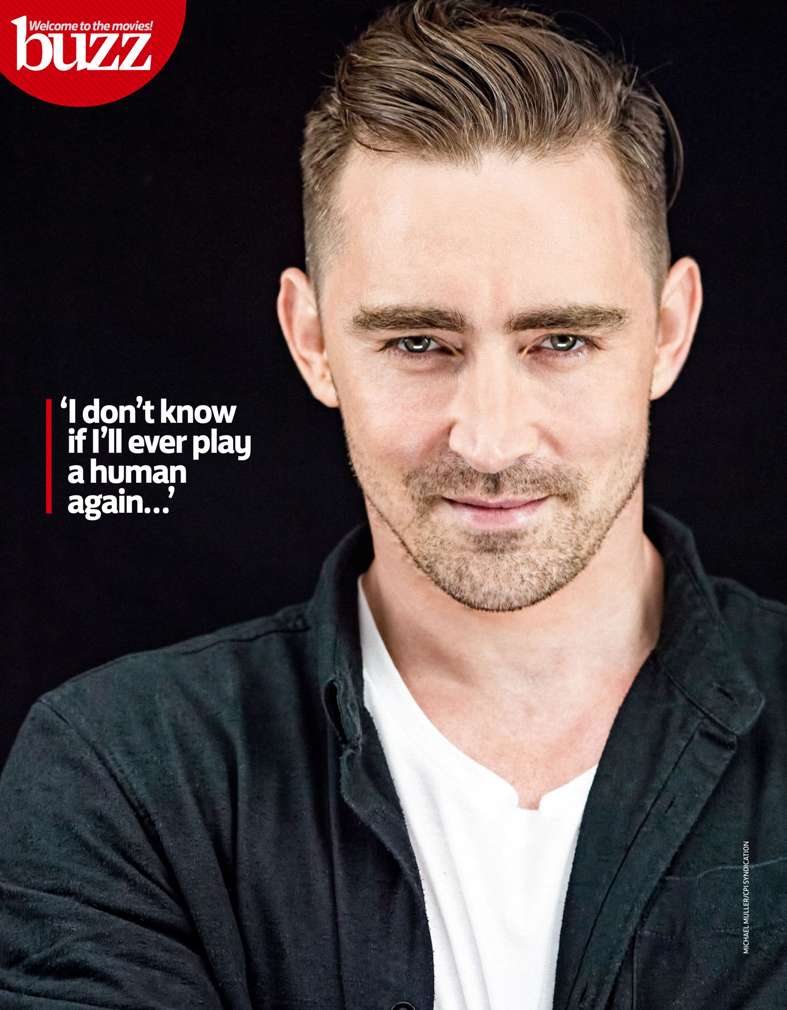
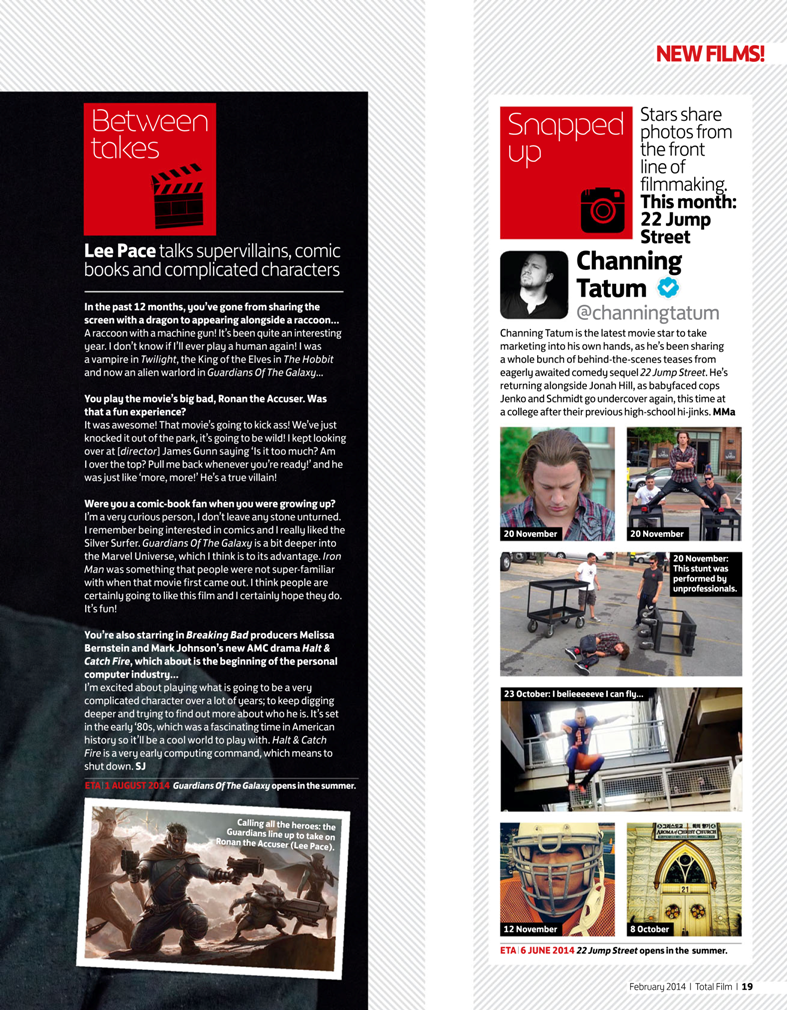
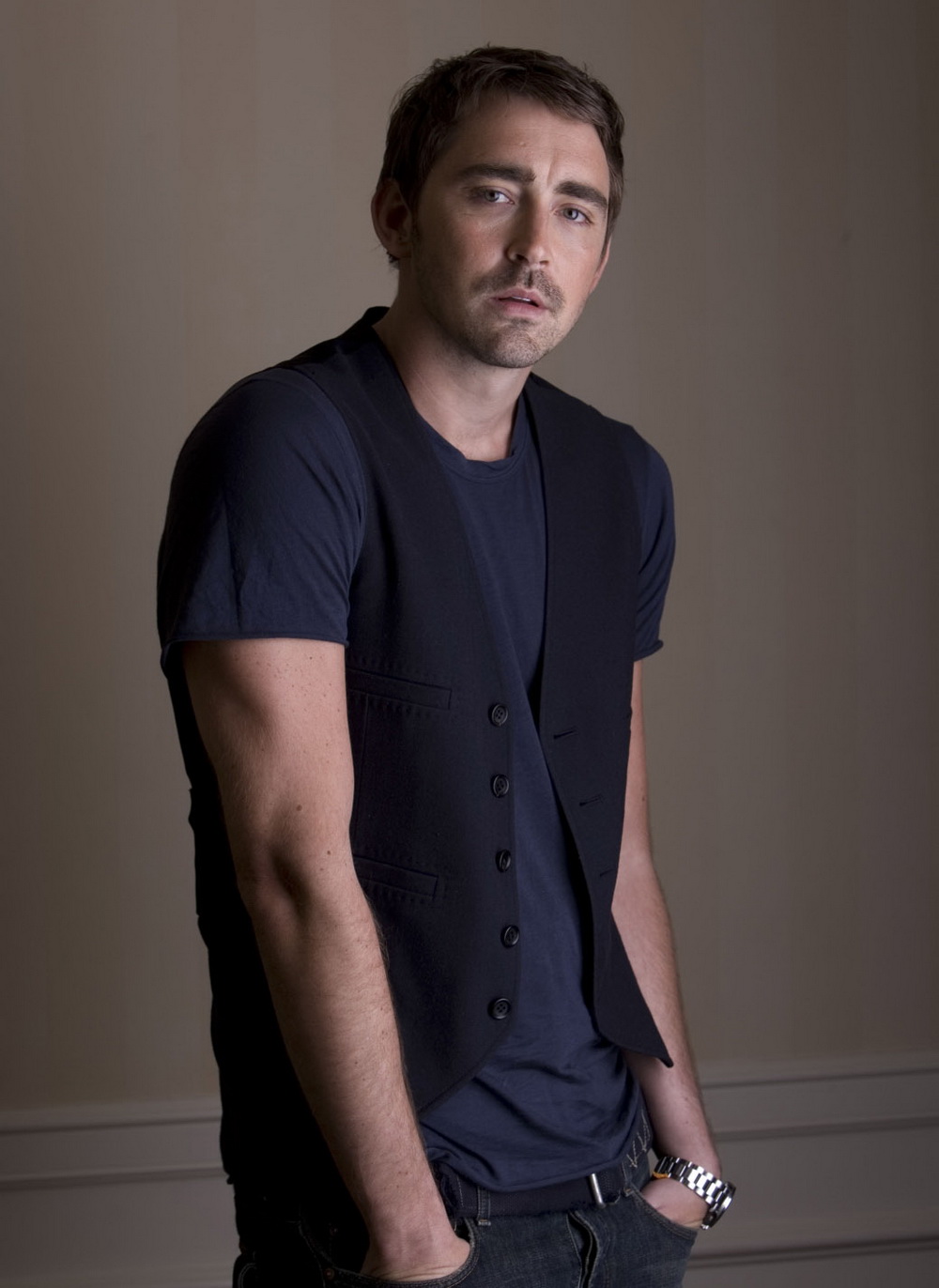 In summer, Lee talked to CLICK about
In summer, Lee talked to CLICK about 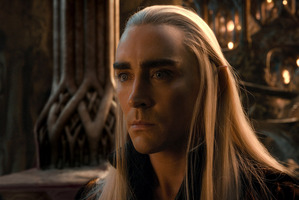 Thanks to my lovely friends at
Thanks to my lovely friends at 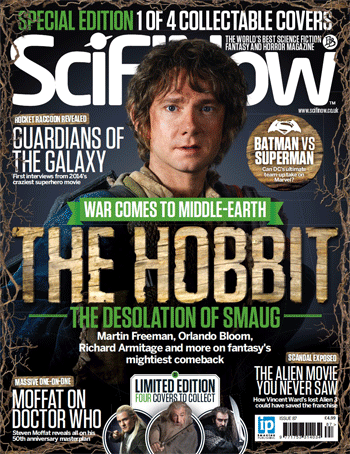 Issue 87 of SciFiNow is now out with four exclusive covers for The Hobbit: The Desolation Of Smaug. You can choose between Bilbo Baggins (Martin Freeman), Gandalf the Grey (Sir Ian McKellen), Legolas (Orlando Bloom) and Thorin Oakenshield (Richard Armitage). Each one has been given a treatment unique to the world their character inhabits, from the creepy Mirkwood of Bilbo to the luxurious gold of Legolas.
Issue 87 of SciFiNow is now out with four exclusive covers for The Hobbit: The Desolation Of Smaug. You can choose between Bilbo Baggins (Martin Freeman), Gandalf the Grey (Sir Ian McKellen), Legolas (Orlando Bloom) and Thorin Oakenshield (Richard Armitage). Each one has been given a treatment unique to the world their character inhabits, from the creepy Mirkwood of Bilbo to the luxurious gold of Legolas. 













